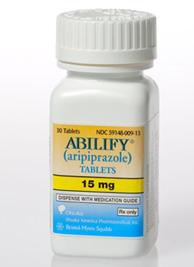 A U.S. federal court ruled against Japan's Otsuka Pharmaceutical in an intricate court case involving an orphan drug, several patents and generics approvals. All of that was involved in a suit against the U.S. FDA.
A U.S. federal court ruled against Japan's Otsuka Pharmaceutical in an intricate court case involving an orphan drug, several patents and generics approvals. All of that was involved in a suit against the U.S. FDA.
Teva Pharmaceutical Industries ($TEVA) was the immediate winner, since it launched a generic of Otsuka's Abilify (aripiprazole) on April 30, just over a month after the Japan-based drugmaker sued the agency.
Otsuka claimed that the agency violated one of several patents the company held for the drug, which is marketed in the United States by Bristol-Myers Squibb ($BMY). The drug registered $554 million in sales the first quarter of this year.
The case began when Otsuka won "orphan drug" designation for the drug after it filed for approval as a pediatric drug to treat Tourette syndrome. The agency didn't get around to approving the drug for market, however, until February 2013. As an orphan drug, it had 7 years of exclusivity, i.e., until 2020.
Otsuka had a problem. Its two patents as a pediatric drug expire in February 2016 and October 2017. But Otsuka also won approvals of the drug for Tourette's in adults and for treating schizophrenia and bipolar disorders, for which it also had patents not expiring until 2021.
The agency caused some of the confusion because after Otsuka noted in a letter to the FDA late last year that the 7-year exclusivity covered a pediatric indication for Tourette's protected by a patent, the agency then changed the indication and Otsuka sued.
Otsuka said the FDA did not have the right to approve a generic for Teva or anyone else because Otsuka had exclusivity for as long as the next two years and patent protection for another 6.
Making his way through the muddle, the judge ruled the orphan-drug designation covered only the original pediatric use for Tourette's and the other treatments were covered by a patent that expired April 20. Teva launched 10 days later.
- here's a story from Reuters
- see a law firm blog about the case